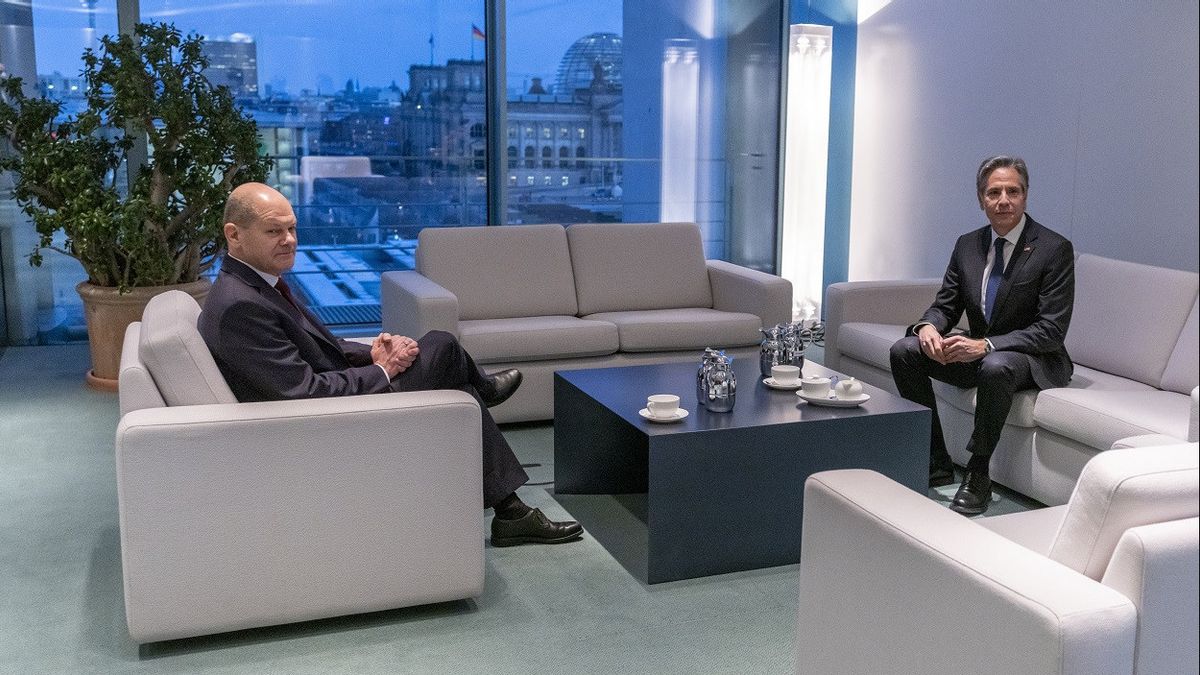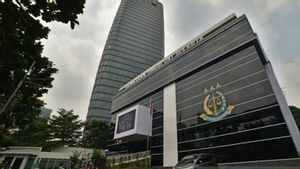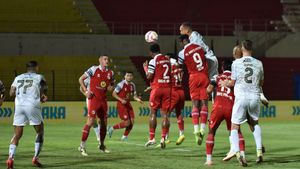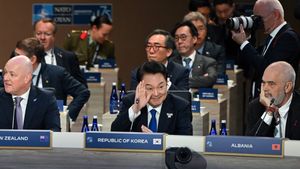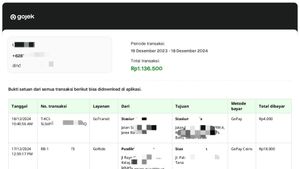JAKARTA - It is too early to talk about resolving the Ukraine crisis, despite tentative signs that diplomacy is making progress, said German Chancellor Olaf Scholz.
Scholz's remarks came as Berlin reported a decline in gas reserves, which are heavily dependent on imports from Russia.
Diplomatic efforts went into overdrive this week, as European governments rushed to stop Russia's military build-up near Ukraine, from exploding into war.
Britain took turns spearheading the effort on Wednesday, with Foreign Secretary Liz Truss flying to Moscow to inform Russia that negotiations were the only way forward.
In Berlin, Chancellor Scholz said Russia had understood the oft-repeated message that it would face severe sanctions if it invaded Ukraine.
Meanwhile, Ukraine separately made upbeat voices on Wednesday, with Foreign Minister Dmytro Kuleba saying, "diplomacy continues to de-escalate tensions."
Chancellor Scholz said the discussions were a good sign but the problems in East-West relations "are very serious and will remain for some time, so they deserve our attention."
"It's too early to say that the issue has been resolved," he said, quoted by The National News February 10.
Political tensions coincide with energy pressures in Europe that have sent prices soaring, leading to concerns Russia is using its ample gas supply as a bargaining chip.
A spokesman for Germany's Economy Ministry said gas stocks, about 35 percent of storage capacity, were below the 40 percent threshold deemed necessary to withstand seven days of cold weather.
The storage facility must be half full to cope with the cold for 30 days.
"Of course we are monitoring the storage level situation and that is certainly worrying," the spokesman said.

Meanwhile, Russia is Germany's biggest gas supplier and the future of Nord Stream 2, the unopened gas pipeline between the two countries, is a bone of contention between Berlin and its NATO allies. Chancellor Scholz will not be interested in the subject on a visit to Washington on Monday.
Separately, European Commission President Ursula von der Leyen told a German newspaper this week, "there are growing signs the Kremlin is using gas shipments as political leverage."
Russia does not yet consider a settlement imminent, after French President Emmanuel Macron claimed to have secured assurances from his counterpart, Vladimir Putin, in Moscow.
"Under the current situation, Moscow and Paris cannot reach any agreement," Kremlin spokesman Dmitry Peskov said.
President Macron said Russia would not escalate the situation in Ukraine, which is bracing for a possible invasion by the 100,000 troops gathered on its eastern flank. However, the United States says an invasion could happen at any time.
Russia also poured cold water on the visit of British Foreign Secretary Liz Truss, which took a slight tone ahead of a two-day trip to Moscow.
It said negotiations with Britain would be short lived if Britain did not stop its rhetoric about potential sanctions that could target wealthy Russians in London.
"If they come to Russia to threaten us again with sanctions, then it is useless. We read everything, saw everything, knew and heard," stressed Russia's Ambassador in London Andrey Kevin.
Minister Truss said Russia "must have no doubt about the strength of our response" if it attacks Ukraine.
Britain's role in negotiations will continue this Thursday, when Prime Minister Boris Johnson visits NATO headquarters and then heads to Poland.
Chancellor Scholz, meanwhile, confirmed top officials from Germany, France, Russia and Ukraine would meet in Berlin on Thursday in the hope of reviving peace efforts.
To note, Russia and Ukraine have each accused the other of violating the Minsk accord, which was meant to bring peace to war-torn eastern Ukraine.
The English, Chinese, Japanese, Arabic, and French versions are automatically generated by the AI. So there may still be inaccuracies in translating, please always see Indonesian as our main language. (system supported by DigitalSiber.id)
